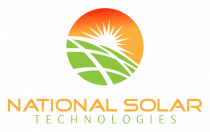What is the Future of Solar Energy Innovations for Sustainable Business Growth
The future of solar energy innovations is poised to play a pivotal role in sustainable business growth, as the global demand for renewable energy surges. According to the International Energy Agency (IEA), solar energy capacity is expected to quadruple by 2030, driven by technological advancements and declining costs. In fact, the levelized cost of solar power has dropped by over 80% since 2010, making it one of the most economically viable energy sources available.
 Businesses that harness solar technologies can not only reduce their carbon footprint but also enhance their operational efficiency and competitiveness. Furthermore, a report by Bloomberg New Energy Finance projects that solar power could account for 30% of the world’s electricity generation by 2040, further solidifying its integral role in the transition towards a sustainable energy future. As such, understanding and leveraging solar energy innovations will be crucial for forward-thinking companies aiming for long-term success in an increasingly eco-conscious market.
Businesses that harness solar technologies can not only reduce their carbon footprint but also enhance their operational efficiency and competitiveness. Furthermore, a report by Bloomberg New Energy Finance projects that solar power could account for 30% of the world’s electricity generation by 2040, further solidifying its integral role in the transition towards a sustainable energy future. As such, understanding and leveraging solar energy innovations will be crucial for forward-thinking companies aiming for long-term success in an increasingly eco-conscious market.
The Role of Solar Energy in Achieving Sustainable Business Practices
As businesses increasingly prioritize sustainability, solar energy has emerged as a pivotal component in achieving eco-friendly practices. By harnessing solar power, companies can reduce their carbon footprint, decrease reliance on fossil fuels, and demonstrate a commitment to environmental stewardship. Transitioning to solar energy not only helps in compliance with regulatory standards but also appeals to a consumer base that values sustainability in the brands they support.
Tip: To start the transition, businesses should conduct an energy audit to evaluate their current energy consumption and identify areas where solar energy could be integrated effectively. This assessment can guide investment decisions and highlight potential savings in energy costs.
Additionally, companies can explore partnerships with solar technology providers to innovate their business processes. Implementing solar solutions like rooftop panels or solar farms can lead to substantial long-term benefits, including lower operational costs and improved brand reputation.
Tip: Consider investing in energy storage systems alongside solar installations to maximize energy efficiency. This ensures that energy generated can be used even when sunlight is not available, further solidifying sustainability efforts and enhancing business resilience.

Emerging Solar Technologies that Revolutionize Energy Efficiency
The future of solar energy innovations is brighter than ever, thanks to emerging technologies that promise to revolutionize energy efficiency. One of the most exciting advancements is the development of perovskite solar cells, a "miracle material" that has been shown to significantly boost energy conversion efficiency while also reducing costs. This breakthrough paves the way for the production of solar panels that outperform traditional technologies, making them a more attractive option for both businesses and consumers.

In addition to perovskite cells, innovative designs such as walkable solar panels are poised to change how we interact with energy generation in our daily lives. These cutting-edge panels not only generate renewable energy but also serve practical purposes, such as creating safe pathways on rooftops or public spaces. As governments promote rooftop solar installations in new homes, the push towards sustainable living grows stronger, reinforcing the notion that solar energy is not just a fleeting trend, but a cornerstone for a sustainable future.
How Solar Innovations Can Drive Cost Savings for Businesses
Solar energy has transitioned from a niche alternative to a key player in the energy landscape, paving the way for significant cost savings for businesses. By harnessing solar innovations, companies can effectively reduce their electricity bills, especially during peak demand periods. One pivotal advancement in this realm is battery energy storage systems (BESS), which enable businesses to store excess solar energy generated during daylight hours. This stored energy can then be utilized when energy prices surge, presenting a proactive approach to energy management and cost efficiency.
Incorporating rooftop solar installations can further enhance savings while promoting sustainability. Businesses can leverage their rooftops to generate clean energy, contributing to energy independence and reducing reliance on traditional power sources. By investing in solar energy systems, companies can not only cut operational costs but also elevate their brand’s commitment to eco-friendly practices.
Tips for Maximizing Solar Savings:
- Evaluate Energy Needs: Conduct a thorough assessment of your company's energy consumption and potential solar production to determine the ideal system size.
- Consider Energy Storage: Invest in battery storage solutions to store surplus energy and ensure you have backup power during peak hours.
- Keep Up with Innovations: Stay informed about advancements in solar technology that can further enhance efficiency and reduce costs.
The Impact of Government Policies on Solar Energy Development
The future of solar energy innovations hinges significantly on government policies, which serve as the backbone for market stability and growth. As the global solar generator market is projected to reach $5.91 billion by 2024, with continued expansion to approximately $10.18 billion by 2032, the impact of regulatory frameworks cannot be overstated. Recent developments, particularly in the United States, have raised concerns about the viability of new solar and wind projects. With former President Trump announcing a halt on approvals for these renewable energy initiatives, the implications for thousands of pending projects are profound, potentially stalling progress in a market that is sensitive to policy shifts.
Countries such as Thailand are responding differently, actively promoting solar energy development as part of their long-term energy planning. Thailand's ambitious goal to triple its photovoltaic capacity by 2037 reflects a more optimistic and proactive stance compared to the uncertainty brewing in the U.S. market. Such contrasting approaches highlight the crucial role government policies play in shaping the future of solar energy. For manufacturers and stakeholders in the solar industry, understanding these dynamics is essential for navigating challenges and capitalizing on emerging opportunities.
What is the Future of Solar Energy Innovations for Sustainable Business Growth - The Impact of Government Policies on Solar Energy Development
| Innovation Type | Description | Impact on Growth | Relevant Government Policies |
|---|---|---|---|
| Solar Panel Efficiency | Advancements in solar cell materials increasing energy conversion rates | Higher efficiency leads to increased output and lower costs | Incentives for research and development in solar technologies |
| Energy Storage Solutions | Innovations in battery technology for enhanced energy retention | Facilitates consistent energy supply and reduces waste | Subsidies for energy storage projects |
| Smart Grid Integration | Technologies that allow for real-time energy management | Improves efficiency and resource management in energy distribution | Funding for smart grid development initiatives |
| Solar Tracking Systems | Mechanisms that adjust solar panels' position for optimal sun exposure | Significantly increases energy collection | Tax credits for investing in advanced solar technologies |
| BIPV Technology | Building-Integrated Photovoltaics that serve as building material | Enhances aesthetics while generating power | Grants for sustainable building materials |
Future Trends in Solar Energy Innovations and Their Market Potential
The future of solar energy innovations is poised for unprecedented growth, driven by key trends and the increasing market potential they present. Notably, advancements in high-efficiency solar panels are expected to significantly enhance energy output. According to a recent report, the global market for solar panels is projected to grow by approximately 20% annually, reaching a valuation of over $200 billion by 2025. This surge is supported by innovations in photovoltaic technologies, which are evolving rapidly to improve conversion rates and lower production costs.
Moreover, the integration of generative AI within solar energy systems is revolutionizing how we approach sustainability and efficiency. This technology enables more effective management of energy resources, facilitating real-time adjustments that maximize energy capture from solar installations. A study indicates that AI applications could enhance system performance by up to 30%, creating a more robust and adaptable energy infrastructure. As we move toward a carbon-free society, these innovations will not only bolster the market potential of solar energy but also align with global efforts aimed at reducing carbon emissions and fostering sustainable business practices.
Future Trends in Solar Energy Innovations
This bar chart illustrates the projected investment in solar energy innovations over the next five years. As indicated, significant growth is expected, highlighting the increasing market potential for solar energy advancements.
Related Posts
-
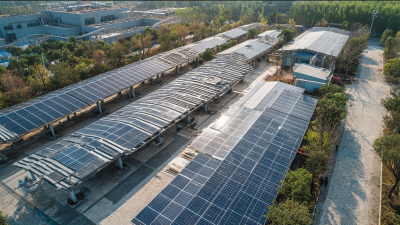
Empowering the World with Chinese Innovation: The Rise of Best Solar Energy Solutions
-
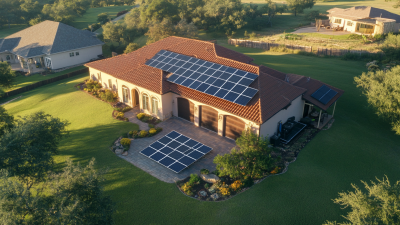
Comprehensive Resource on Solar Panel Systems for Global Buyers
-
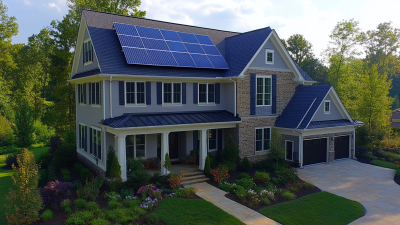
Unlock the Power of Solar Electric: Revolutionizing Sustainable Energy Solutions for Global Buyers
-
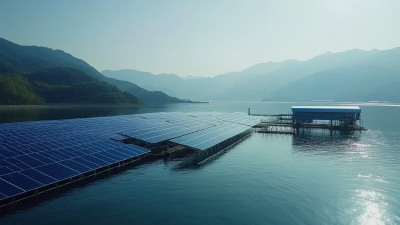
Unlocking Sustainable Energy Solutions: The Future of Global Sourcing for Solar Panels
-

Finding Reliable Suppliers for Off Grid Solar Power Solutions A Comprehensive Guide
-

Innovative Solar Solutions to Power Your Business for a Sustainable Future
